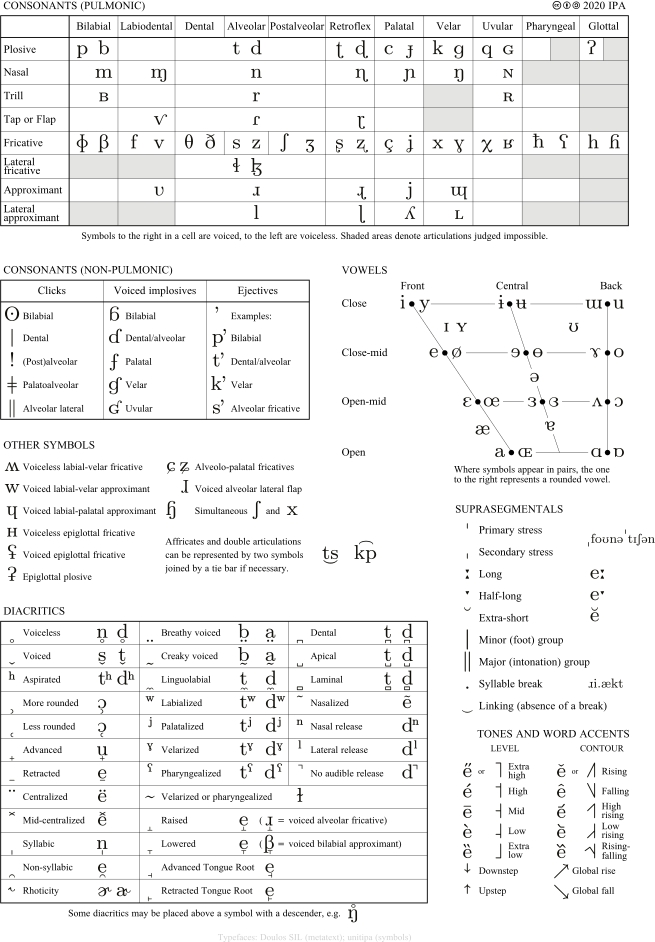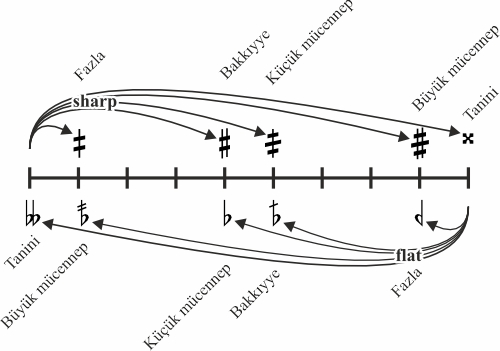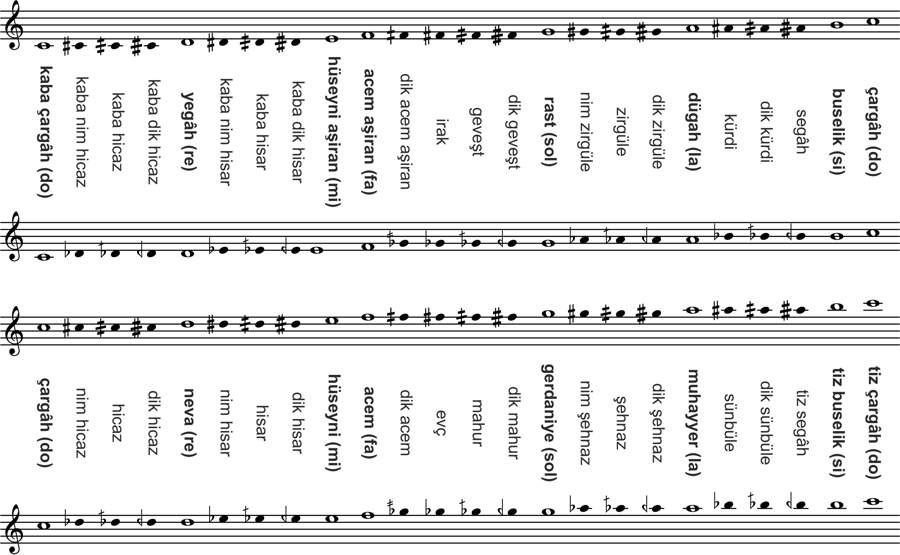Transliteration and pronounciation
The Cyrillic Bulgarian, Serbian and North Macedonian scripts are generally transliterated using ISO 9:1995 Transliteration of Cyrillic characters into Latin characters. Where necessary, pronounciation is given between // using the International Phonetic Alphabet (click on link or see below).
Bulgarian
| Cyrillic | Latin/IPA |
| А а Б б В в Г г Д д Е е Ж ж З з И и Й й К к Л л М м Н н О о П п Р р С с Т т У у Ф ф Х х Ц ц Ч ч Ш ш Щ щ Ъ ъ Ь ь Ю ю Я я |
a b v g d e /ɛ/ ž /ʒ/ z i j /j/ k l m n o p r s t u f h c /ts/ č /tʃ/ š /ʃ/ št /ʃt/ ǎ /uh/ y /-/ yu ya |
Macedonian
| Cyrillic | Latin/IPA |
| А а Б б В в Г г Д д Ѓ ѓ Е е Ж ж З з Ѕ ѕ И и Ј ј К к Л л Љ љ М м Н н Њ њ О о П п Р р С с Т т Ќ ќ У у Ф ф Х х Ц ц Ч ч Џ џ Ш ш |
a b v g d ģ /ɟ/ e /ɛ/ ž /ʒ/ z dz i j /j/ k l lj m n nj o p r s t ḱ /c/ u f h /x/ c /ts/ č /tʃ/ dž /dʒ/ š /ʃ/ |
Serbian
| Cyrillic | Latin/IPA |
| А а Б б В в Г г Д д Ђ ђ Е е Ж ж З з И и Ј ј К к Л л Љ љ М м Н н Њ њ О о П п Р р С с Т т Ћ ђ У у Ф ф Х х Ц ц Ч ч Џ џ Ш ш |
a b v g d Đ đ /dʑ/ e /ɛ/ ž /ʐ/ z i j /j/ k l lj m n nj o p r s t ć /tɕ/ u f h /x/ c /ts/ č /ʈʂ/ dž /ɖʐ/ š /ʂ/ |
Greek
| Greek | Latin/IPA |
| Α α Β β Γ γ Δ δ Ε ε Ζ ζ Η η Θ θ Ι ι Κ κ Λ λ Μ μ Ν ν Ξ ξ Ο ο Π π Ρ ρ Σ σ/ς Τ τ Υ υ Φ φ Χ χ Ψ ψ Ω ω ΑΙ αι ΑΥ αυ ΒΠ βπ ΓΓ γγ ΓΚ γκ ΓΞ γξ ΓΧ γχ ΕΙ ει ΕΥ ευ ΗΥ ηυ ΝΤ ντ ΟΙ οι ΟΥ ου |
a v g d /dh/ e /ɛ/ z i th i k l m n x o p r s t y f ch /x/ ps o /ɔː/ /ɛ/ /av/ /b/ /ng/ /nk/ /nks/ /nx/ /i/ /ev/ /iv/ /d//nd/ /i/ /u/ |
Turkish
| Latin | IPA |
| A a B b C c Ç ç D d E e F f G g Ğ ğ H h I ı İ i J j K k L l M m N n O O Ö ö P p R r S s Ş ş T t U u Ü ü V v Y y Z z |
. . /dʒ/ /tʃ/ . . . . /-/ . /ɯ/ . . . . . . . /ø/ . . . /ʃ/ . . /y/ . /j/ . |
Romanian
| Latin | IPA |
| A a  â Ă ă B B C c D d E e F f G g H h Î î J j K k L l M m N n O o P p R r S s Ş ş T t Ţ ţ U u V v X x Y y Z z |
. /ə/ /ɨ/ . /k//tʃ/ . . . /ɡ//dʒ/ . /ɨ/ /ʒ/ . . . . . . . . /ʃ/ . /ts/ /u//w/ /v/ . /j/ . |
The Internation Phonetic Alphabet (revised to 2020)

Turkish tone system
Many of the Turkish scores (and some other ones) are noted using the Arel-Ezgi system, which divides a whole-tone interval in nine commas. In folk music scores, commas may also be indicated with a number next to the sharp and flat symbols.

Further reading
- Makam – Modal practice in Turkish art music / Karl Signell / Da Capo Press, 1986 / 200 pp / ISBN 0521542065
- Turkish music makam guide / Murat Aydemir / Pan Yayıncılık, 2010 / 216 pp / ISBN 9789944396844
Turkish notes
In the Turkish system notes have individual names, as listed in the below figure. In the standard transposition, the Turkish Re/D5 equates to the Western La/A4 and has a frequency of 440 Hz. In the Turkish tradition, written music is never transposed (as this would obscure the mode/makam); musicians are expected to be able to play any, or at least common transpositions from the same score.

Further reading
- Makam – Modal practice in Turkish art music / Karl Signell / Da Capo Press, 1986 / 200 pp / ISBN 0521542065
- Turkish music makam guide / Murat Aydemir / Pan Yayıncılık, 2010 / 216 pp / ISBN 9789944396844

